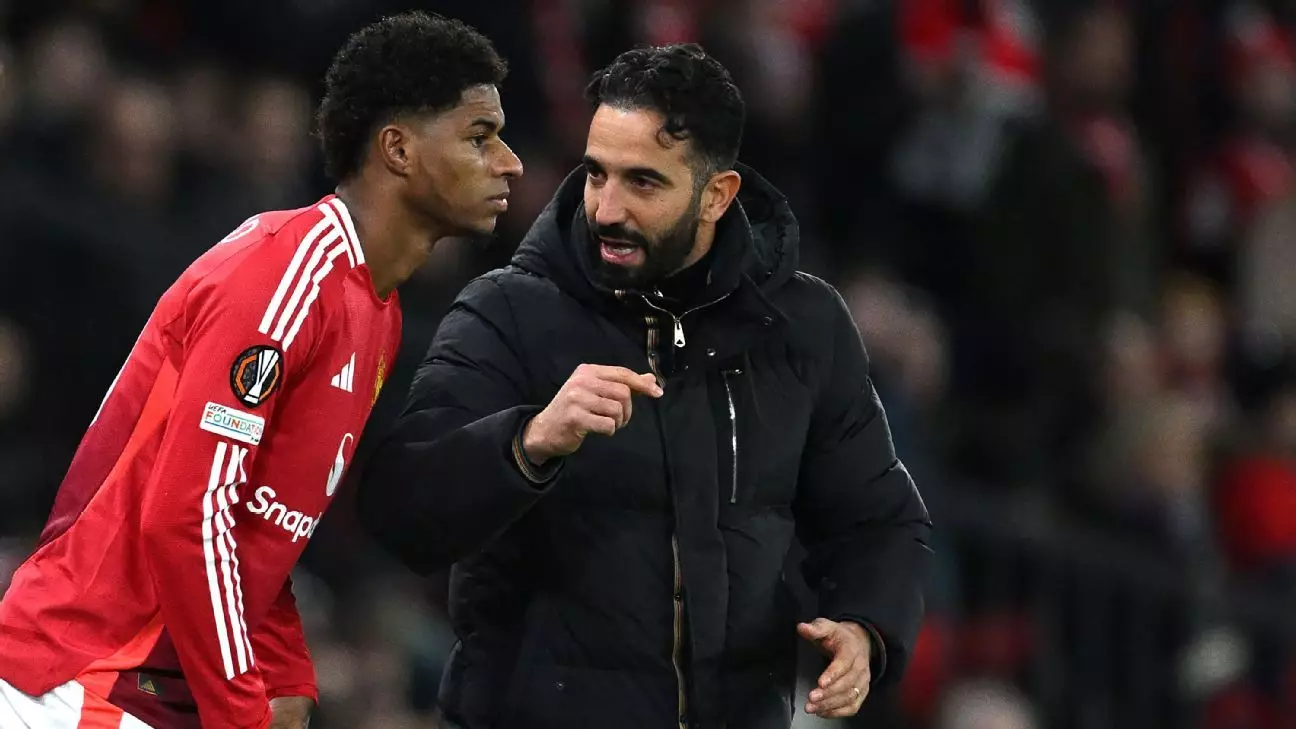Marcus Rashford’s potential departure from Manchester United has sparked discussions across football circles, especially with notable figures like Ruben Amorim weighing in on the matter. Amorim, the club’s manager, has expressed his desire for Rashford to remain, framing the player’s future within the context of a transformative phase for both the individual and the club. The manager’s assertion reflects both a commitment to maintaining a talented squad and a strategic vision aimed at returning Manchester United to its former glory in European football.
Amorim describes the current scenario as “the biggest challenge in football,” highlighting the complexities faced by a club historically regarded as a giant. The pressure to revive Manchester United’s success entails not only tactical adjustments but also the ability to retain world-class players like Rashford, whose journey at the club spans two decades.
Rashford’s recent remarks suggest his consideration of a “new challenge” after an extensive tenure with Manchester United, which indicates a possible shift in his career ambitions. The forward expressed disappointment at being excluded from the squad during an important derby match against Manchester City, raising questions about his role in the team moving forward. The emotional toll of such decisions reflects a broader feeling among players who yearn for reassurance and a clear pathway for their development.
His announcement that he bears “no hard feelings” points to a growing sentiment of detachment that many athletes may feel in a high-pressure environment. The question arises: can loyalty coexist with the pursuit of personal growth? Rashford’s contemplation of leaving, despite his deep-rooted history with the club, encapsulates a struggle many players face—a desire for evolution versus fidelity to an institution that has shaped their careers.
Amorim also addressed the dynamics at play for all players, noting that performance in training will ultimately dictate the selection for upcoming fixtures. This meritocratic approach may boost competition within the squad, incentivizing players to elevate their game. However, it also puts players like Rashford under considerable scrutiny, as they navigate their form amid managerial shifts and tactical reconfigurations.
The dialogue between Amorim and Rashford, though currently uninitiated, will likely play a pivotal role in shaping the forward’s decision. The manager has emphasized that having Rashford in peak condition is vital for the team’s success, suggesting an openness to explore various strategies to rekindle his past performances. The underlying message is clear: Manchester United needs its stars to shine brightly if they are to reclaim their status in top-tier football.
As both Rashford and Amorim confront this transitional period at Manchester United, their paths remain intertwined. The club’s ambition to rise from its current struggles relies significantly on the involvement of key players like Rashford. In an age where player loyalty is challenged by the lure of new opportunities, the resolution of this situation will demonstrate whether lasting commitment outweighs the thirst for novel experiences in professional football. With the pulse of the club’s future resting on the decisions made today, both player and manager must navigate these complexities with foresight and intent.

